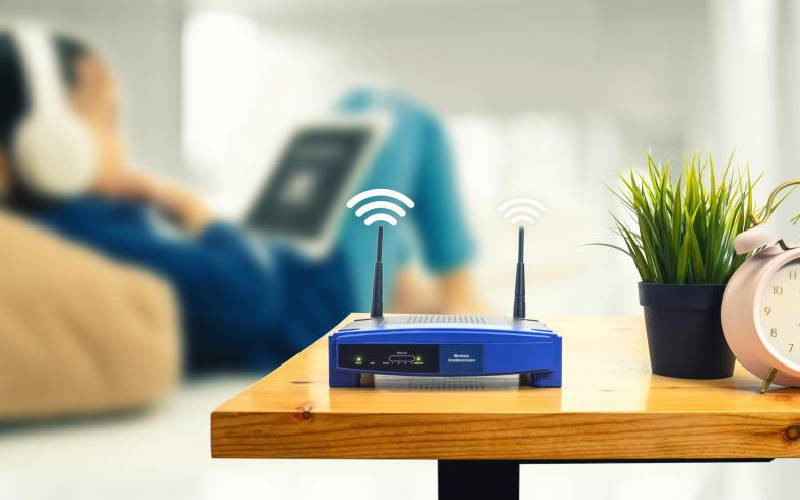
Kenyans working from home are posing a new cyber security threat to many organisations, according to Internet security experts.
Internet security firms say most companies are experiencing renewed levels of cyber-attacks, owing to unsafe networks.
“Several organisations have paid the price for laxity in security at their branch offices,” said Abhilash Sonwane, Cyberoam’s senior vice president for technology and product.
“While they deploy best security at their main offices, hackers find their way into their networks by breaching security at smaller satellite offices. This is becoming even more frequent as the work-from-home culture is gaining greater acceptance and home office locations are rarely ready for modern day security challenges.”
Data from a recent cyber security report states that with more companies in Kenya allowing their employees to bring their own devices to work, hackers are taking advantage of the poor security of these devises to access sensitive company information.
“With the continued adoption of enterprise mobility, a growing percentage of workers are using their personal devices to access corporate resources,” states the report.
“When these devices are not secured, this introduces a wide range of security threats.”
In the past few years, the ‘bring your own device policy’ has become common in the corporate sector, owing to the affordability and variety of portable consumer technology.
Many companies believe that encouraging and even facilitating their employees to use laptops, tablets, and smartphones increases their productivity since they do not have to be physically present in the office to work.
Operational costs
It cuts down on operational costs since the company is saved the expense of purchasing new equipment like desktop computers. This however, presents a security threat to the company, since employees often take little or no steps to safeguard their portable devices from cyber threats.
Small businesses are at most risk because Internet security in small and medium enterprises is normally an afterthought and few people consider procuring security solutions unless they have been hit.
“Kenya and Tanzania are growing markets and the information and technology industries in these two markets are among the fastest growing in sub-Saharan Africa,” said Philip Obondy, Cyberoam’s channel manager for Kenya.
“However, this growth also provides for great risk because many users are as yet unaware of the dangers that they expose themselves to, either through human error or by overlooking the importance of security solutions.
Stay informed. Subscribe to our newsletter
“One of the challenges that security systems pose, particularly those bought over the shelf, is that they allow little room for customisation or they can only be used on one device,” said Mr Obondy.
The company has launched a network security solution for Kenya, which allows users a broad range of protection, providing coverage for operating systems, desktops, mobile devices and exchange servers.
Remote areas
The software can also protect off-network laptops and other devices, meaning you are covered even in remote areas or when travelling.
Obondy said this is important, going by the growing adoption of tablets and smartphones that pose a security threat to a company’s internal networks.
“Some of the key threats include botnet attacks, cyber-espionage, online and mobile banking fraud.”
[email protected]
 The Standard Group Plc is a
multi-media organization with investments in media platforms spanning newspaper
print operations, television, radio broadcasting, digital and online services. The
Standard Group is recognized as a leading multi-media house in Kenya with a key
influence in matters of national and international interest.
The Standard Group Plc is a
multi-media organization with investments in media platforms spanning newspaper
print operations, television, radio broadcasting, digital and online services. The
Standard Group is recognized as a leading multi-media house in Kenya with a key
influence in matters of national and international interest.
 The Standard Group Plc is a
multi-media organization with investments in media platforms spanning newspaper
print operations, television, radio broadcasting, digital and online services. The
Standard Group is recognized as a leading multi-media house in Kenya with a key
influence in matters of national and international interest.
The Standard Group Plc is a
multi-media organization with investments in media platforms spanning newspaper
print operations, television, radio broadcasting, digital and online services. The
Standard Group is recognized as a leading multi-media house in Kenya with a key
influence in matters of national and international interest.









